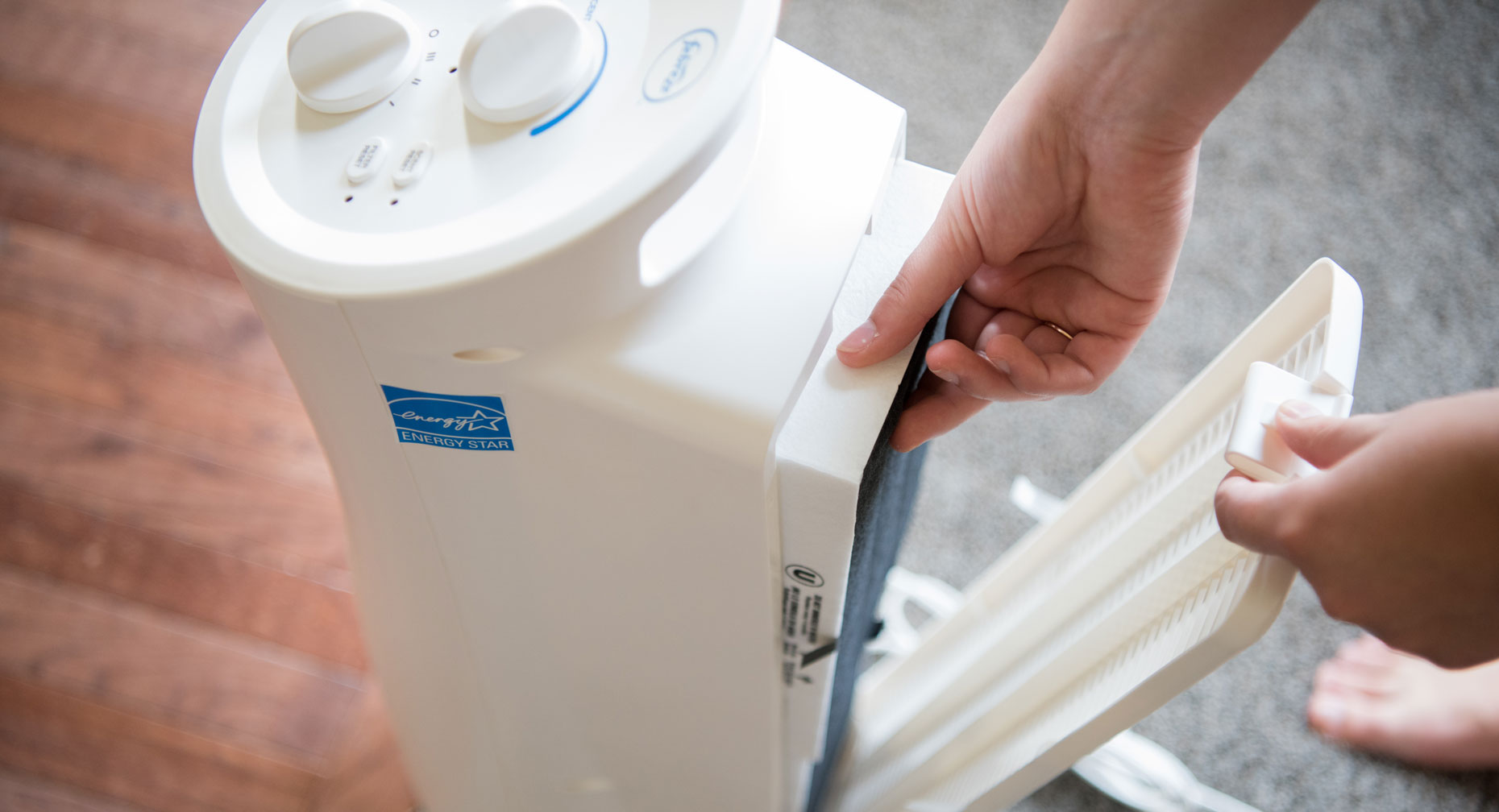Helping or Hurting? Air Purifiers, Humidifiers and Your Asthma

Answer a few questions and we'll provide you with a list of primary care providers that best fit your needs.
If you live with asthma, you know the importance of paying close attention to the quality of the air you breathe. Since asthma attacks can be brought about, or worsened, by airborne allergens and irritants such as dust, mold, pollen, cigarette smoke, and others, it’s smart to look for ways to improve the air quality around you, particularly in your home.
With that goal in mind, many asthma sufferers turn to appliances such as humidifiers and air purifiers, or filtration systems , to help reduce the effects of allergens and irritants in the air they breathe.
Air purifiers and humidifiers can certainly be helpful in improving the air quality in your home and easing your symptoms. But along with their benefits, these devices can sometimes have disadvantages. It’s important to weigh the benefits and cautions.
To give your asthma the best chance of benefiting from an air purifier or a humidifier in your home, the device should be carefully and regularly maintained.
Air Purifiers
These filtration systems work by removing pollutants. They trap the small particles of pollen, dust mites, mold and other irritants that are commonly found in household air. Air purifiers can be attached to your heating and air-conditioning system, and they can also be purchased as stand-alone portable room units.
How they can help. A good air-filtration system can make a significant improvement to the overall purity of the air in your home (some HEPA [high-efficiency particulate absorption] filtration systems are said to be up to 99.9 percent efficient in removing unwanted particles from the air). To the extent that your severe allergies or asthma are irritated by airborne pollutants, an air-filtration system could make a noticeable difference for you.
Cautions. While air filters can often be a help, they are not a cure-all, and the difference they make may not be dramatic. In addition, some types of filtration systems, such as electronic filters called ionizers, produce ozone, which is a known lung irritant. In order to work well, an air-filtration system must be carefully maintained, with its filter elements changed regularly on the schedule recommended by the manufacturer.
If your filtering system is connected to your home’s HVAC ducts, any gaps in your ductwork will decrease the efficiency of the filter, as will leaving your windows open. In any case, experts recommend that before you spend a lot of money on an expensive air filtering system, you should first seek to remedy any air-quality problems in your home at their source, working to eliminate irritants such as dust mites, pet dander or moldy areas in your home.
Humidifiers

During the winter, the continual use of your home-heating system can dry out the air in your home, irritating your eyes, throat and lungs. For that reason, most central heating systems include a built-in humidifier, which adds moisture to the air in the house to help relieve those problems. Portable humidifiers are also available, making it possible to add moisture to a single room or to just a portion of a home.
How they can help. If you heat your home for a good part of the year, or if you live in a very dry climate, a humidifier will make your home more comfortable to live in. Humidifiers can also be helpful if you suffer from sore throats, nosebleeds, headaches, coughs or other ailments related to dry air. In addition to your personal comfort, a humidifier helps to keep the home itself from suffering undesirable effects caused by air that’s too dry, including loosening of floorboards and furniture joints.
Cautions. Clearly, in some climates, humidifiers play an important role in keeping us, and our homes, comfortable. But for asthma sufferers, they are a potential source of trouble. Unless they are cleaned regularly and thoroughly, they can serve as breeding grounds for mold and bacterial growth, which then gets distributed throughout the house and can trigger your asthma.
Dust mites — the number-one indoor allergen — thrive in moisture, so it’s important that the humidity in your home stay within recommended bounds. Most experts agree that the humidity level of the air in your home should stay somewhere between 30 and 50 percent. If you have a mold allergy, it’s best to keep the humidity below 45 percent, and ideally below 35 percent. You can purchase a tool called a hygrometer to measure the humidity in your home.
To give your asthma the best chance of benefiting from an air purifier or a humidifier in your home, the device should be carefully and regularly maintained. Be sure to follow the manufacturer’s recommendations regarding cleaning procedures and filter changes.
Answer a few questions and we'll provide you with a list of primary care providers that best fit your needs.
Source: American College of Allergy, Asthma & Immunology; Asthma and Allergy Foundation of America; American Academy of Allergy, Asthma & Immunology




